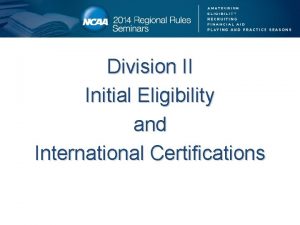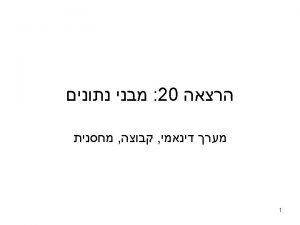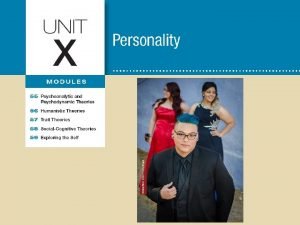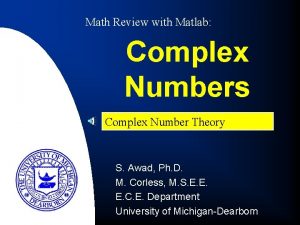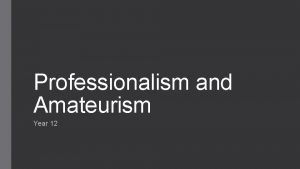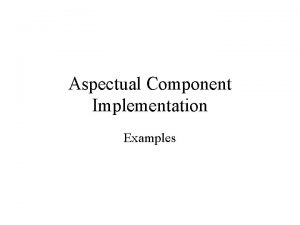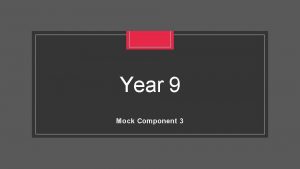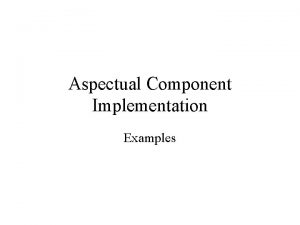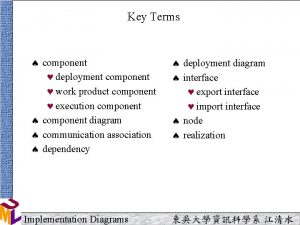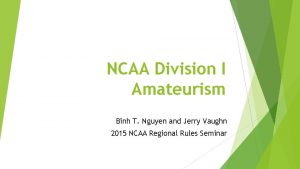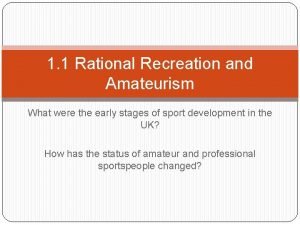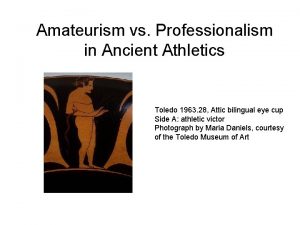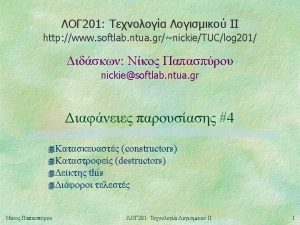Complex Case Review A Component of the Amateurism














![Range of Assessment Outcomes [CATEGORY NAME] 8% Pending Institutionally. Managed Review 5% [CATEGORY NAME] Range of Assessment Outcomes [CATEGORY NAME] 8% Pending Institutionally. Managed Review 5% [CATEGORY NAME]](https://slidetodoc.com/presentation_image/36a9a0c594238b214f96b4598968588a/image-15.jpg)








- Slides: 23

Complex Case Review A Component of the Amateurism Certification Process

Session Overview Goals for today’s session. Provide an overview of the Amateurism Certification Process and the Complex Case Review program. Share concepts for enhancing the service-delivery model. Listen, learn and continue identifying opportunities for collaboration. 2

Certification Charge and Scope Determine the validity of the information on which the amateur status of a prospective student-athlete is based. NCAA Bylaw 12. 1. 1. 1 Certification is limited to activities that occur prior to the request for final amateurism certification or enrollment at a Division I or II institution, whichever occurs earlier. NCAA Bylaw 12. 1. 1 3

Three Methods of Review Automated Review. Approximately 90% of all reviews. Statistically low likelihood of a violation based on historical trends. Manual Review. Core Certification. • Approximately 9% of all reviews. • Designed to address issues that can generally be identified through self-reported information (e. g. , participation history). Complex Case Review. • Less than 0. 5% of all reviews. • Uses data analysis, online research and source information to address issues that cannot be identified effectively through self-reported information. 4

Scope of the Certification Process 100, 000 students request amateurism certification each year. 5 Core Certification Process Complex Case Review Manual Review Triggers ≈ 9, 000 (9%) are identified for manual review through the core certification process. ≈ 475 (0. 475%) are identified for complex case review. Review/ Investigation ≈ 6, 000 (66%) manual reviews require additional information. ≈ 30 (6. 3%) manual reviews lead to an investigation. Certification Conditions ≈ 700 (7%) manual reviews result in a violation. ≈ 15 (3%) manual reviews result in a violation.

Core Certification Review Triggers Example of Core Certification Triggers Student’s age at time of enrollment. Student’s educational path and educational path in the country where student attended secondary school. Sports structure in the country where the student participated in athletics. Student’s sport. Student’s participation history. 6 Identifies fewer than 9, 000 students for review. Typical violations include delayed enrollment, participation with professionals and prize money. Typical sports include soccer, volleyball, swimming, and track. 5 -7% of manual reviews have historically resulted in a violation.

Complex Case Review Triggers Example of Complex Case Review Triggers Geographic movement, multiple secondary schools or changes in athletics participation. Patterns of unofficial visits or third-party involvement in the recruiting process. Affiliation with certain teams, events or programs. Source information associated with a specific PSA. Link analysis. 7 100 students have been identified for 2016 -17. Typical violations include preferential benefits, benefits from a prospective agent and agent agreement. Typical sports include men’s basketball and football. 3 -5% of complex case reviews have historically resulted in a violation.

Pre-Enrollment Trends Individuals and athletically-related foundations marketing students for participation opportunities. International recruiting. Individuals asserting guardianship status. Agents, financial advisors and apparel companies providing payment, employment arrangements or other opportunities. Payment or benefits for participation (AAU, 7 -on-7, International Club, NBA Development League, Minor League). Third-party involvement with the recruiting process. 8

Pre-Enrollment Summit (Feb 29) Regulatory Affairs staff met with a cross-section of Division I membership impacted by the complex case review process. Discussion included policy and process considerations. Key takeaways: Focus on priority issues. Timely movement through the process. • Opportunities for the institution to take a lead role in running out the issues. • Information sharing, collaboration, interviews. Notice of the issues, analysis and process on the front-end. 9

Comparing Past and Present 2015 -16 Model Proposed (2016 -17) Model Intended Benefit Institutions did not know which issues were being reviewed and what information was relevant to the analysis at the onset of the review. Priority issues are identified at the onset of the review with input from the membership, enforcement and AMA. Eliminates uncertainty as to the scope of the certification process; allows institutions and national office to align resources with priorities. Institutions did not know what information to gather or what information would be relevant to the interpretive analysis. Staff will identify the issue(s) being reviewed and provide guidance on the applicable analysis at the onset of each review. Reduces timelines by allowing all parties to focus on gathering relevant information. Ensures all parties have an equal understanding as to the relevance of particular information. Certification staff took a lead role in conducting the review. Oftentimes, the institution was not actively engaged until an initial statement of facts was issued. Each complex case review will begin with a kick-off call to develop a collaborative review plan early in the process. Reduces uncertainty as to the scope of the review and creates greater opportunity for institutional participation in the process. Helps reduce the timeline for review by allowing the parties to determine how information should be acquired. Institutions had to agree to a set of facts before knowing the interpretive analysis, presenting mitigating circumstances or discussing possible outcomes. The staff will summarize its findings, identify any violation(s) being alleged and provide its analysis through a comprehensive review summary. The institution can appeal from the staff position or provide mitigation in support of a reinstatement request. Institutions will have all information necessary to make an informed decisions regarding the direction of the review, including the decision whether to appeal a factual or interpretive determination or proceed to reinstatement. 10

THE CERTIFICATION PROCESS

Initial Assessment After a PSA requests final amateurism certification, the amateurism certification staff performs an initial assessment. The assessment protocol involves compiling information from existing NCAA records and online resources. 12

Status of Initial Assessments As of May 16, 2016: 72 of 100 PSAs identified for complex case review have requested final amateurism certification. Staff completed an initial assessment on every PSA who requested a final amateurism certification. Most assessments were completed within four days of the request for final amateurism certification. Next step is “Final Certified” or … 13

Internal Review Board (IRB) All investigatory reviews must be approved by the IRB, which is comprised of the amateurism certification management team. Disposition options include: Final Certified (with or without an “FYI” communication). Institutionally-Managed Investigation. Investigative Review. Request an interpretation. Refer to enforcement. 14
![Range of Assessment Outcomes CATEGORY NAME 8 Pending Institutionally Managed Review 5 CATEGORY NAME Range of Assessment Outcomes [CATEGORY NAME] 8% Pending Institutionally. Managed Review 5% [CATEGORY NAME]](https://slidetodoc.com/presentation_image/36a9a0c594238b214f96b4598968588a/image-15.jpg)
Range of Assessment Outcomes [CATEGORY NAME] 8% Pending Institutionally. Managed Review 5% [CATEGORY NAME] 5% Pending IRB Presentation 2% [CATEGORY NAME] 73% [CATEGORY NAME] 7% As of May 16, 2016. 15

Service Timelines Our goal is to complete the assessment within seven (7) days of a PSA’s request for certification. Our goal is to provide an Internal Review Board decision within fourteen (14) days of the request for certification. On average these decisions have been communicated within nine (9) days of the request for certification. Request for Final Certification Service Standard: 2016 Average: 7 days Assessment Notification 4 days 16 14 days 9 days [30 cases in 2015] Investigative Review

Institutionally-Managed Investigation Initial Call. ACP staff provides status of the review. ACP staff identifies issues of concern. Exchange available information through web custodial (Box. com) Institution conducts the investigation independently and reports findings of fact. Institutional findings will determine next steps in the process. 17

Investigatory Review Process Initial Call. ACP staff provides status of the review. ACP staff identifies issues of concern. Exchange available information through web custodial (Box. com) Conduct a kick-off call. Discuss available information; determine needed information. Identify range of outcomes (published guidelines). Develop a collaborative review plan and timeline for resolution. Both parties will conduct the review in accordance with the review plan. Wrap-up call. Review summary. Resolution options, if necessary. 18

How would you proceed? Scenario No. 1: PSA is seen in several photographs with a Bentley automobile. The photographs span multiple locations on multiple days. PSA was approved for a fee waiver through the Eligibility Center. Scenario No. 2: A reliable source reports that PSA and his family are receiving living expenses from a registered agent. Initial assessment (public records review) confirms that PSA’s family lives in a home owned by a business entity registered to one of the agent’s known business associates. PSA’s mother and the agent are linked through social media. 19

How would you proceed? (cont. ) Scenario No. 3: PSA took more than twenty unofficial visits (many of which required plane travel and overnight stays). Media reports indicate PSA was accompanied on most visits by his trainer. PSA’s trainer had been the assistant basketball coach for PSA’s 8 th grade AAU team; he also works with a registered agent to prepare clients for pre-draft workouts. According to an anonymous source, the trainer serves as the PSA’s “handler” (i. e. , all recruiting contact with the PSA must go through the trainer). A second source reported that the trainer solicited member institutions to pay expenses associated with the PSA’s unofficial visits. 20

Conclusion Questions or comments… About the complex case review program; or, The pre-enrollment amateurism environment? Any “best practices” that might help to inform the process of conducting pre-enrollment amateurism reviews? Anything else? ec-amateurism@ncaa. org 21

We Want Your Feedback Your input is important. Rate this session using the survey on the Regional Rules Seminar app. 22

23
 Ncaa amateurism certificate
Ncaa amateurism certificate Best case worst case average case
Best case worst case average case What are the components of social work
What are the components of social work Consider a case of a two-component standby system
Consider a case of a two-component standby system Simple compound complex and compound-complex sentences quiz
Simple compound complex and compound-complex sentences quiz Miliary tb
Miliary tb Simple, compound-complex rules
Simple, compound-complex rules Oedipus complex and electra complex
Oedipus complex and electra complex Freudian fixation
Freudian fixation Thematic apperception
Thematic apperception Matlab complex number polar form
Matlab complex number polar form Epimune complex review
Epimune complex review Hình ảnh bộ gõ cơ thể búng tay
Hình ảnh bộ gõ cơ thể búng tay Frameset trong html5
Frameset trong html5 Bổ thể
Bổ thể Tỉ lệ cơ thể trẻ em
Tỉ lệ cơ thể trẻ em Gấu đi như thế nào
Gấu đi như thế nào Glasgow thang điểm
Glasgow thang điểm Hát lên người ơi alleluia
Hát lên người ơi alleluia Các môn thể thao bắt đầu bằng từ đua
Các môn thể thao bắt đầu bằng từ đua Thế nào là hệ số cao nhất
Thế nào là hệ số cao nhất Các châu lục và đại dương trên thế giới
Các châu lục và đại dương trên thế giới Công của trọng lực
Công của trọng lực Trời xanh đây là của chúng ta thể thơ
Trời xanh đây là của chúng ta thể thơ
